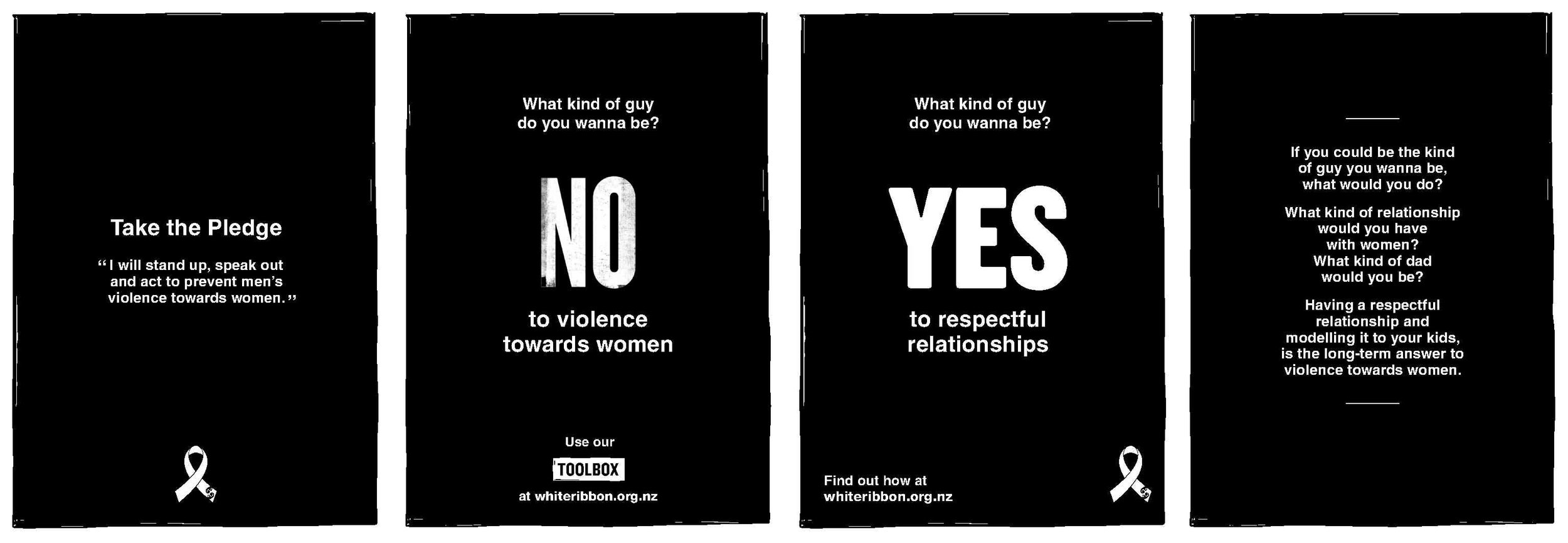End violence against women
(from The Migrant Times; the original story is here https://themigranttimes.org.nz/stories/2016/11/30/end-violence-against-women?rq=end)
This Friday, November 25, was White Ribbon Day, a UN-recognised international day urging all to eliminate violence against women. It all came about through a men’s movement in Canada drawing attention to the issue in 1991 that led to the UN designating a world day to call on global efforts to tackle the issue of gender-based violence.
What is interesting behind the now globally-recognised day is that efforts to raise awareness and put a stop to the on-going human rights issue came from men. Men are the main perpetrators in domestic violence incidents and other types of violence directed against women, so it is extremely important for men to be actively involved and show support by promoting attitudes that respect women and discussing what is and is not acceptable behaviour.
Domestic violence is one of the most common types of abuse women experience but many go unreported as it often takes place in the privacy of the household and involves the partner. According to a UN report in 2011 detailing the progress of women worldwide, New Zealand ranked the lowest among OECD countries on categories related to violence against women, recording a high number of cases of violence experienced by women. To obtain some more information about the issue of domestic violence in New Zealand Denise Roche (Green Party MP) and Poto Williams (Labour Party MP) were contacted.
Why is the issue of domestic violence so important in New Zealand?
According to Denise Roche, who represents the Green Party’s Auckland Central, domestic violence is an important social problem in New Zealand because it does not discriminate: “It [affects] all demographics and cultures.”
Williams, Labour Party representative of Christchurch East, added that victims of domestic violence come from “all socio economic spectrums” affecting “all races, ages and sexual orientations” but that some groups tend to appear more frequently in statistics – “the Maori, Pacific and other ethnicities and they young and people of low incomes” indicating “a systemic failure.”
Why is domestic violence so high?
As for the possible reasons behind New Zealand’s surprisingly high rates of domestic violence, both Roche and Williams thought New Zealand’s attitude towards women could be a big contributor. Williams said there’s a “culture of violence” that exists in New Zealand while Roche commented that New Zealand has an “appalling attitude to women and children” referring to incident of Prime Minister John Key pulling the ponytail of a waitress in 2015 as a key example of harassment women experience.
What is the biggest challenge to stopping domestic violence?
Both MPs believed that the solution lay with altering attitudes with Roche pointing to the prevalence of ‘male privilege’ and the need to raise the status of women. That is why, according to Roche, actions like White Ribbon Day are so important because it shows men “taking responsibility” to address the problem. Williams believed long-term solutions that were “cross-partisan and sustainable” were required and suggested a campaign similar to the Smoke Free legislation could be launched to promote a Violence Free culture. As an example of a successful campaign, Roche pointed to the Sophie Elliott Foundation that was set up by Sophie Elliot’s mother whose daughter died from domestic abuse at the hand of her ex-partner.
What is being done to end domestic violence?
As part of efforts to end violence against women, Roche mentioned that several male MPs from the Green Party are White Ribbon Ambassadors, taking the pledge to speak up against violence against women and children. Williams, who is the spokesperson for sexual and domestic violence, holds public events such as group discussions and the use of her radio program to bring attention to the issue and discuss viable solutions. Both MPs stressed the vital role agencies like the Women’s Refuge and SHAKTI (an international ethnic women’s support group) have in providing much needed support to the victims and the importance of investing resources and funding to intervention and prevention efforts.
NZ's statistics:
One in three women experience some form of violence from their partner in their lifetime
There were 110,114 family violence investigations by police in 2015, up by 8% from 2014
80 percent of domestic violence cases go unreported
The economic cost of domestic violence is estimated to be around $4.1 billion – 7 billion a year
- Lisa (Yoon Jin) Oh
Recently finished a Master's in Human Rights and Democratisation in the Asia Pacific from the University of Sydney specialising in migration. Previously worked for the Korean Ministry of Foreign Affairs as an English Editor.



- The above three posters courtesy White Ribbon Campaign NZ
